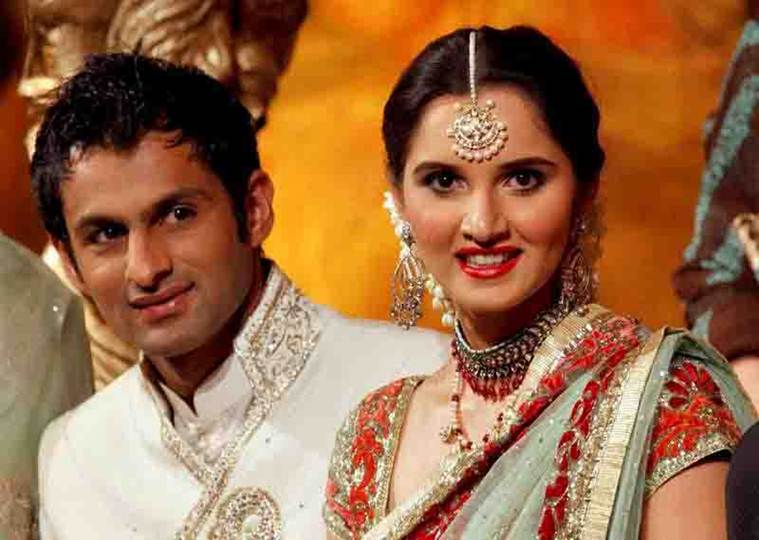Sania Mirza is certain about one thing: she doesn’t want pictures of her child “all over the media.” Mirza is at her Banjara Hills house in Hyderabad. She can’t recall the last time she’s spent so much time here “doing nothing”. There have been the odd injury breaks but, “even then, you are doing your rehab,” she adds. “Right now, I am having a lot of down time which I have never had.” Most of it has been spent understanding pregnancy quirks, like sleeping for eight straight hours and still waking up tired; or, getting more emotional than she can ever remember herself to be. There’s a new experience almost every day, but, largely, the last few months have been spent dealing with the “discomfort”. “I am getting more and more uncomfortable now. But that physical pain is nothing compared to the feeling that you’ll have when you have a child in your arms,” she says.
Mirza insists that hers has not been a stereotypical pregnancy. But then, it wouldn’t have been any other way with her. Since the time she popped into our lives in the mid-Noughts, Mirza’s been a liberator. A big-hitting, self-aware breaker of stereotypes with a dream so big, that it was refreshingly beautiful. Indian sport hadn’t seen anything like her.
At the Australian Open in 2005, her first major tournament, she didn’t bat an eyelid when she was thrown in the cage with Serena Williams, the superhero who had just started to demonstrate her wide-ranging powers. Instead, she carved out her own niche with her Popeye arms, that belted out fierce forehands and made rankings and reputations irrelevant. She spoke with poise and grace to the international media, but she never held herself back from speaking her mind.
 Sania Mirza with husband, Pakistani cricketer Shoaib Malik, at their wedding reception in Sialkot, Pakistan. (Courtesy: Sania Mirza)
Sania Mirza with husband, Pakistani cricketer Shoaib Malik, at their wedding reception in Sialkot, Pakistan. (Courtesy: Sania Mirza)
Mirza set herself free, and, in doing so, waymarked trails for the rest to follow. Now, she hopes to send that message across even during pregnancy. “It’s important to realise it’s just a part of your life, it empowers you,” she says. “I walk around 4 km every day, do yoga; I also played tennis for some time. It’s important to know that you are only pregnant, not ill. You don’t have to be in bed all day as long as you are keeping your baby safe,” she says.
As active sportspersons, who often lived in different time zones, the decision to plan a family wasn’t straightforward for Mirza and Malik. Malik has been trotting the globe, either with the Pakistan cricket team or as a T20 emissary, while Mirza was engaged in doubles duels in some corner of the world.
Whenever their schedule would permit, the couple spent time in Dubai — the neutral venue for their cross-border union. The call, however, was tougher for Mirza, in particular. She’d had a scarcely-believable run since 2015, winning 18 titles and reaching a dozen other finals that made her the undisputed best in women’s doubles. But her march was abruptly ended by a freak knee injury — jumper’s knee, caused by repetitive stress on the quadriceps tendon — last October.
She was advised complete rest for at least six months, and more time before she could return to tennis. Mirza announced her pregnancy in April. She says it “just felt like the right time” to have a child. “It is one thing to be ready for parenthood, but with our careers…there are so many things that went into us planning to have kids. If I was in a profession that did not require me to stop doing it, if I was doing any other job which didn’t involve any physical activity, I would’ve been working till the eighth month. However, being an athlete, you have to literally transform your body,” she says.
The changes have been overwhelming. It’s been a phase of “self-discovery” for Mirza, who says she never imagined “her body can take so much”, that “it can create another human being!” she says with awe. It’s been a “healthy pregnancy” — there have been mood swings, but no undue stress; not much midnight cravings either. “Whenever I crave for something, I chill it out. I have tried to be as healthy as possible




